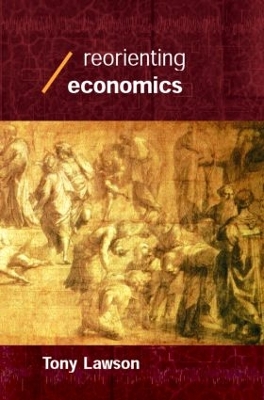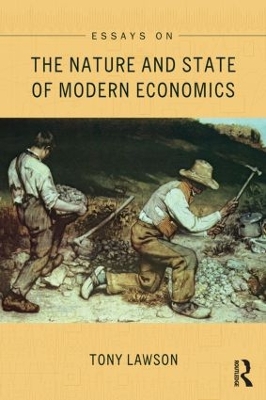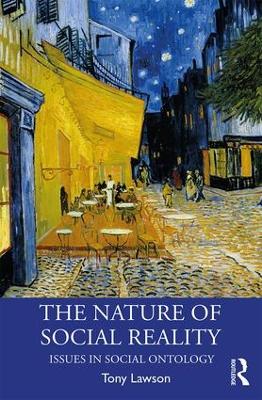Economics as Social Theory
4 total works
Contemporary economics is characterized by a mismatch between its methods of analysis and the nature of the world it seeks to interpret. Despite regular economic crises and ongoing critique of the discipline, the drift from political economy into applied mathematics appears to continue unabated. In this book, Tony Lawson advocates a relignment of economics with social reality.
In analyzing mainstream economists' misplaced universality, the author places ontology at the heart of a reoriented future in which economics is integrated within the wider human and social sciences.
What do modern academic economists do? What currently is mainstream economics? What is neoclassical economics? And how about heterodox economics? How do the central concerns of modern economists, whatever their associations or allegiances, relate to those traditionally taken up in the discipline? And how did economics arrive at its current state? These and various cognate questions and concerns are systematically pursued in this new book by Tony Lawson. The result is a collection of previously published and new papers distinguished in providing the only comprehensive and coherent account of these issues currently available.
The financial crisis has not only revealed weaknesses of the capitalist economy but also highlighted just how limited and impoverished is modern academic economics. Despite the failings of the latter being more widely acknowledged now than ever, there is still an enormous amount of confusion about their source and true nature. In this collection, Tony Lawson also identifies the causes of the discipline’s failings and outlines a transformative solution to its deficiencies.
Amongst other things, Lawson advocates for the adoption of a more historical and philosophical orientation to the study of economics, one that deemphasizes the current focus on mathematical modelling while maintaining a high level of analytical rigour. In so doing Lawson argues for a return to long term systematic and sustained projects, in the manner pursued by the likes of Marx, Veblen, Hayek and Keynes, concerned first and foremost with advancing our understanding of social reality.
Overall, this forceful and persuasive collection represents a major intervention in the on-going debates about the nature, state and future direction of economics.
The social sciences often fail to examine in any systematic way the nature of their subject matter. Demonstrating that this is a central explanation of the widely acknowledged failings of the social sciences, not least of modern economics, this book sets about rectifying matters.
Providing an account of the nature of social material in general, as well as of the specific natures of central components of the modern world, such as money and the corporation, Lawson also considers the implications of this theory regarding possibilities for social change. Readers will gain an understanding of how social phenomena, from tables and chairs, to money and firms, and nurses and Presidents are constituted. Fundamental to Lawson’s conception is a theory of community-based social positioning, whereby people and things within a community become constituted as components of emergent totalities, with actions governed by the rights and obligations of relevant members of the community. This theory isolates a set of basic principles that will offer the reader an understanding of the natures of all social phenomena.
The Nature of Social Reality is for all those, academics and non-academics alike, who wish to gain a grasp on the nature of social phenomena that goes beyond the superficial.



